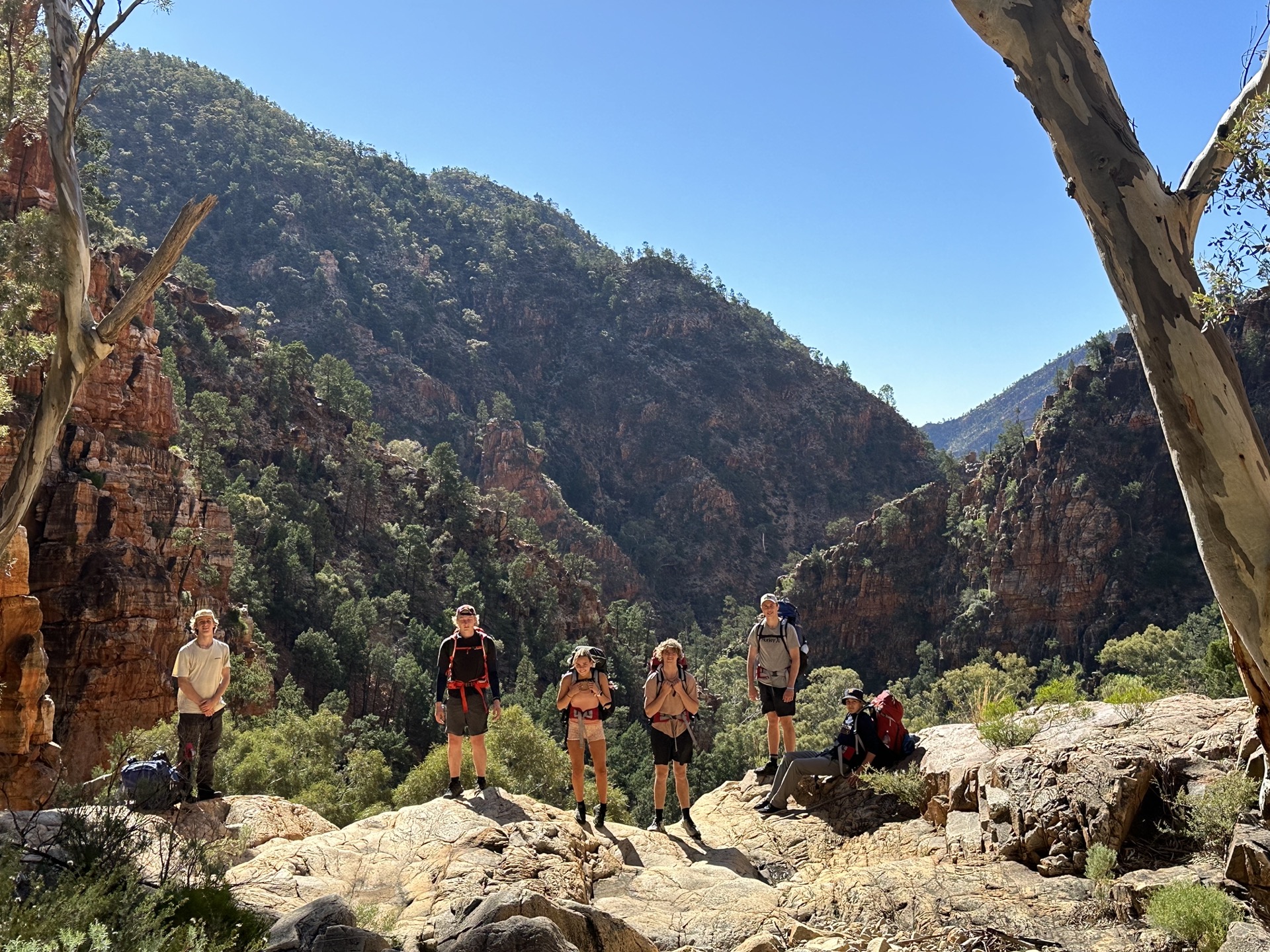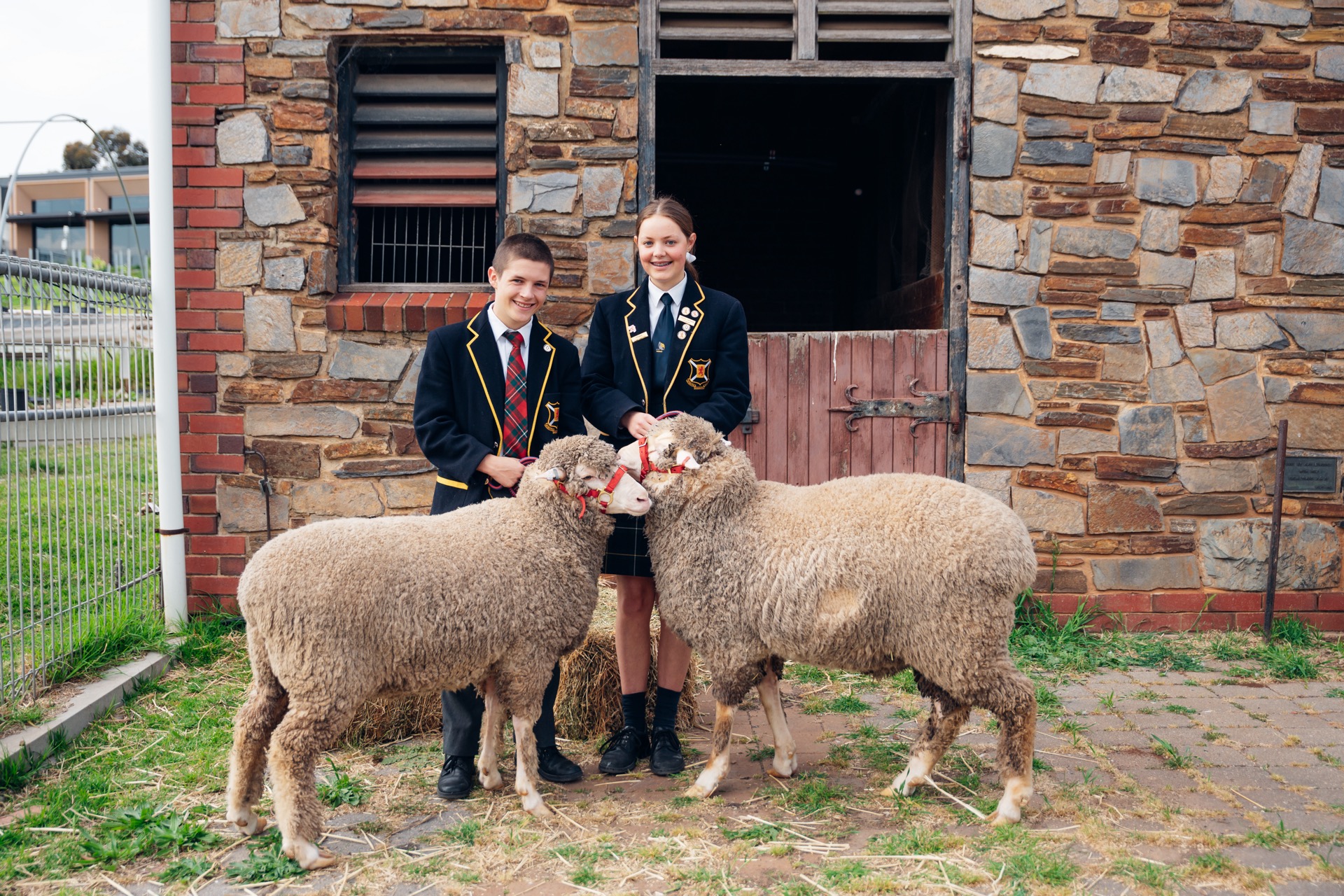Impact
Outdoor Classrooms
Outdoor Education is an integral component of the Scotch College curriculum, offering students the opportunity to enjoy Australia’s unique outdoor life, while nurturing respect for the environment and enhancing key life skills.
From the early years to Year 12, the Camps and Outdoor Education program at Scotch builds on each prior year’s experience with a focus that enhances the curriculum. The program begins in Year 2 and each overnight camp builds on the skills and experiences obtained as students’ progress. Destinations are chosen for their impact, enabling students to intrinsically understand the need for environmental protection and sustainability.
Understanding sustainability is intertwined into all programs along with learning about culture and country and the need for forward thinking land management practices. Emphasis is placed on resilience, teamwork, leadership, group dynamics, sustainability, and environmental awareness in addition to practical living skills are built into the program.
Our camps are managed by Scotch staff, in conjunction with several industry leading external providers, to further enhance positive relationships between our students and staff.
Camps continue as part of the curriculum at Years 7 to 10, with Outdoor Education offered as an elective subject in Years 11 and 12. A sense of responsibility for the environment continues to be fundamental throughout the Outdoor Education curriculum.
At these levels, camps have a scope and sequence that allows students to progressively build skills, knowledge and experience in a range of areas. Campcraft is a key component of all programs with students learning to plan and cook on a Trangia and sleep in a lightweight expedition tent from early in the program.
Leadership and Group Functioning are key components of all year level programs and students are given the tools to enhance their leadership ability and look at how to work most effectively in a highly functioning team.
During the two-week Scotch Odyssey (9@Scotch) experience in Year 9 especially, students will develop practical living skills, like cooking, shopping and planning. Emphasis is placed on resilience, teamwork, leadership, sustainability, and environmental awareness in addition to practical living skills and students keep a progressive, reflective journal during each camp.

Beyond Boundaries: Year 10 Adventure Education Program
Our new Year 10 programs are designed to push students beyond their comfort zones, fostering personal growth and resilience, while disconnecting from technology and spending quality time with their peers.
Beyond Boundaries offers students a choice in the type of experience they will have in Term 4, inviting them to embrace experiential learning in unfamiliar environments and lean into an adventure of their choice. With a strong focus on sustainability, our programs teach students the importance of environmental stewardship while engaging in challenging activities like sailing, kayaking, snorkelling, white water rafting and hiking.
Students will both enjoy the unique environments we journey to and develop essential life skills. Our programs emphasise leadership and effective group functioning (building on lessons learned from 9@Scotch), ensuring that students learn to work collaboratively and lead with confidence. Additionally, students will continue to develop valuable camp-craft skills such as setting up tents, cooking on trangias, and navigating through the wilderness.
These remote and immersive programs are designed to instil a sense of independence and resourcefulness, making for a truly transformative experience.
Skills for Life
The outcomes of the outdoor education program include promoting leadership, resilience, stewardship, cultural understanding and independence skills that the students will take with them throughout their lives. It aims to teach them how to deal with things when they get hard and how to be a contributing member of a team.
The SACE programs in Year 11 and 12 take the next step with developing camp craft skills as well as understanding and appreciating our natural environments. Students are tested in a range of terrestrial and aquatic environments, then use these experiences to reflect on how they have developed their leadership, social and group functioning skills along with their practical outdoor skills and ability to manage risk. The camp components of the SACE programs provide rich, intense learning experiences that are hard to replicate.
We believe that the outdoors is the perfect medium to help facilitate relationships. The nature of a camps where students live and interact together for extended periods of time allows students to develop deeper relationships with their peers, and gives the opportunity for conflict management in a practical and constructive way – key skills to take into everyday life.
On-Campus Ag Farm

In addition to our Outdoor Education camps and programs, Scotch is home to an agricultural farm.
The fully functioning farm lies within the 20 hectares of the College, complete with cattle, alpacas, chickens and sheep. An established vineyard, orchard, stable and shearing shed complement the livestock enterprises.
The farm was established on the Torrens Park campus in 1923 in recognition of the needs of the boarders who were from the country and needed skills as well as academics with which to return home, and was the first agricultural school in South Australia. It has since maintained its position as an integral part of educating Scotch students from all walks of life.
Now incorporating sustainable agricultural components as well as a fully working farm, students learn in a real life environment, often competing in Royal Show competitions and achieving first prizes. Students can learn animal husbandry as well as participating in oenology, horticultural, agricultural and aquaculture activities.
The Scotch Farm encompasses two environments – the outdoor (farm and surrounds) and the indoor Farm Skills Centre. These areas are connected with an integration of farm practices using technologies focusing on areas such as enterprise management and agribusiness, and sustainable solutions for agtech and foodtech at all stages of the supply chain.
Agricultural Science is offered as an optional course with many students electing to participate. An Agricultural student leaving Scotch will have a ‘innovative-thinking’ approach to production and land management, be entrepreneurial, be familiar with the leading industry technology, champion sustainability, and have a working knowledge of current industry standards.






